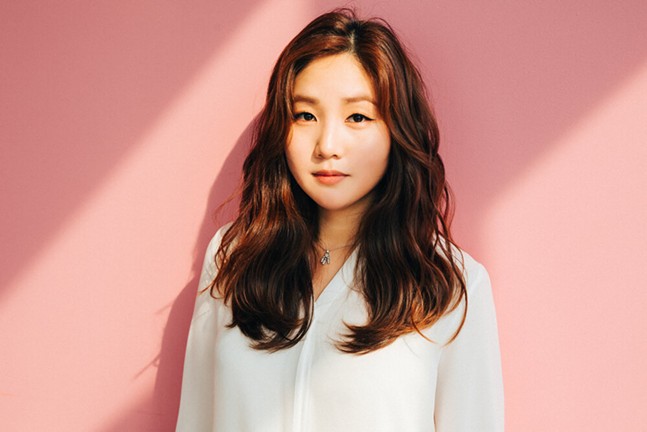There's a line in Frances Cha's debut novel If I Had Your Face that speaks to the release as a whole, without having much to do with the plot: "In New York, you can talk to anyone about anything at any time and have a conversation so long you'll fall a little bit in love with that person, and then never see them again."
It's spoken during a conversation between one of the main characters, Ara, and a friend, Miho, while discussing the differences between relationships in America and Korea. The exchange is emblematic of how If I Had Your Face, out now via Ballantine Books, allows those unfamiliar with modern Korea to get a peek into Korean culture. And all the while the reader gets a glimpse into the lives of the four main characters, maybe falling a little bit in love before the story ends abruptly. Cha drops you off in the middle of their existence, then pulls you back out before their difficult situations and unpleasant experiences are resolved.
Besides Ara, a mute hairdresser who is obsessed with a K-pop star, there's Kyuri, a top-tier room salon worker who has had numerous cosmetic surgeries to try and meet Korea's extremely high beauty standards. Kyuri's roommate, the previously mentioned Miho, is an orphaned artist who went to school in New York City and is dating a rich heir. Finally, there's Wonna, a newlywed trying to have a baby while struggling to make ends meet. The single thread that draws the four women together is their living situation. They all live in the same apartment building — or officetel — in Seoul.
While the reader doesn't leave If I Had Your Face with a cut-and-dry conclusion, they will walk away with insight into a Korea that is not often portrayed in Western media. The unspoken popularity room salons. The pressure to wed. The declining birth rates. The fixation on image and class. The wealth disparity. And the motivation behind plastic surgery, not for vanity, but for a chance for a better life. Beauty can bring you power, love, and a better career, if only you had a different face.



